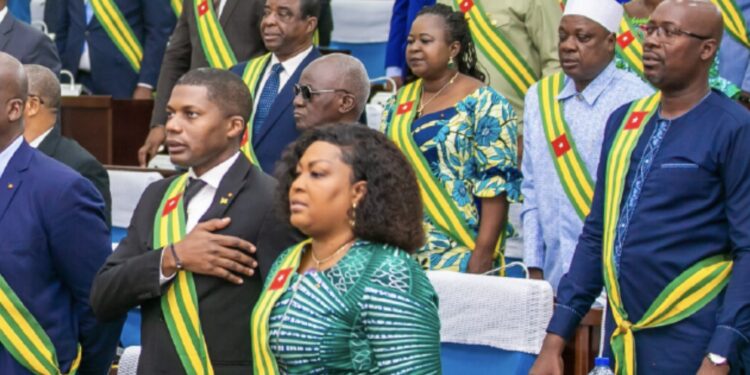In December 2018, Togo’s main opposition decided to boycott regional and legislative polls. What appeared to be an issue of principle against an election process that was seen to be flawed has turned out, in hindsight, to have introduced one of the most gross democratic reverses of recent times in the country. The unchallenged Union for the Republic (UNIR), the ruling party, won a clear majority at the polls and rapidly used it to reinterpret the constitutional order to suit its goals. The country is on the verge of consolidating authoritarian rule, and the price is being paid by the very people that the opposition had wanted to protect.
The boycott of the 2018 parliamentary election, according to opposition leaders, was a form of protest against a political process they believed was rigged, lacking transparency, neutrality, and legitimacy. However, by refusing to participate, the opposition effectively vacated the democratic arena, allowing the ruling party to gain unimpeded control over parliament. Out of the 91 seats, the ruling party won 59 of them with the others going to independent and other parties that subsequently formed a coalition with the ruling party. This vacuum has proven costly. UNIR used its dominance to push through constitutional reforms that abolished presidential term limits and transitioned the country from a presidential to a parliamentary system, consolidating power in the hands of an already entrenched elite.
For many Togolese citizens, this was not just a political loss; it was a democratic rupture. The absence of opposition voices in the legislative process has meant no institutional checks on executive overreach. In response, citizens took to the streets in protest in June, 2025. What began as peaceful demonstrations quickly escalated into violent confrontations, with security forces reportedly using excessive force to suppress dissent resulting in the arrest of celebrities, death and injuries of others. The result is that the country has been on the brink, where anger boils over in marketplaces and campuses, and confidence in the democratic process has plummeted.
The Togolese case echoes a broader pattern in African politics: when opposition parties disengage from flawed elections, they often strengthen the hand of incumbents rather than challenge them. Boycotts, while symbolically powerful, rarely deliver the institutional change they intend. Instead, they create democratic vacuums that ruling parties exploit to rewrite rules, crush dissent, and entrench their hold on power. In Togo, the boycott handed the regime a constitutional blank cheque, one it cashed with little resistance.
Yet, the opposition’s decision must be understood in context. For decades, Togo has been plagued by electoral manipulation, repression of dissent, and the dynastic rule of the Gnassingbé family. Since 1993, the late president Eyadema and his son, the incumbent president, Faure have won all elections conducted amidst opposition claims of systemic fraud. As a result, the opposition has faced a dilemma: participate in a rigged system and risk legitimising it, or abstain and risk irrelevance. Unfortunately, the latter strategy has resulted not in reform but in regression.
This moment calls for a rethinking of opposition strategy. Rather than withdrawal, there is a need for strategic engagement, participation that is principled but not passive. Opposition groups must invest in civic education, coalition-building, and international advocacy to pressure regimes from within and outside the ballot box. Equally, the international community must rethink its tepid response to democratic erosion. The African Union and ECOWAS, long criticised for their “non-interference” approach, must take bolder stances against constitutional coups disguised as legal reform. Togo’s descent into autocracy is not just a Togolese tragedy, it is a cautionary tale for the region. It reminds us that democracy dies not only through military takeovers but also through constitutional manipulation and political silence. The cost of electoral boycotts, when not coupled with sustained resistance and strategic alternatives, can be devastating.
As the country grapples with the aftermath of protest and repression, one truth becomes clear: when opposition voices exit the stage, autocracy writes the script. It is time for Togolese civil society, the diaspora, and reformist actors to reclaim the narrative and reimagine pathways to democratic renewal.






























